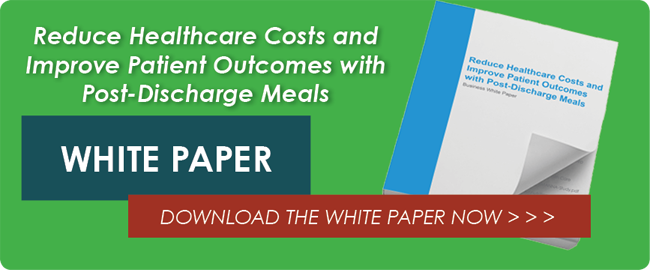This is the first of a 5-part series, Impact of Nutrition Care on Patient Outcomes. In this series, we will review original research that shows the impact nutrition care has on patient outcomes.
Readmission Rates and Impact
Last year, 18% of Medicare patients were readmitted within 30 days of being discharged. It is estimated that these readmissions cost the federal government about $26 billion. According to Kaiser Health News, about 65% of these health care costs came from readmissions that could have been avoided.

In October 2012, the Hospital Readmissions Reductions Program (HRRP) was launched as part of the Affordable Care Act. It requires CMS to reduce payments to hospitals with excess readmissions. As a result, Medicare reimbursement will be reduced for 2,610 hospitals in fiscal year 2015 due to their high rates of readmissions for patients with certain conditions.
One Factor - Weight Loss - Is Preventable
A study published in 2011, evaluated clinical, operational, and sociodemographic factors associated with hospital readmission within 30 days for general medicine patients.1 The study didn’t attempt to predict who would be readmitted, but identified risk factors that would allow providers to target interventions to reduce avoidable readmissions. The factors associated with hospital readmission within 30 days are:
- Black race
- Medicaid payer status
- Inpatient use of narcotics and corticosteroids
- Diagnosis of cancer, renal failure, and congestive heart failure
- Weight loss
Post-Discharge Home-Delivered Meals Reduce Readmissions
Of the risk factors identified, weight loss is the only one that is preventable. While in the hospital, all patients are screened for nutrition risk. Care plans are developed to provide nutrition intervention during the hospitalization. However, transition care plans often do not address nutrition risk after discharge. Weight loss, particularly in the elderly, is common after a hospitalization as a result of decreased energy, depression, and restricted diets for chronic conditions. Often times, the individual isn’t well enough to prepare meals.
Providing home-delivered meals after discharge, has shown to be effective in preventing weight loss. In a CMS pilot2, post-discharge meals reduced hospital readmissions by 39%. Home-delivered meals are also cost-effective. A single day in the hospital is 200 times the cost of three home-delivered meals.
For more information on malnutrition in the elderly, click here.
Download free ebook on questions to ask when choosing a home-delivered meals provider.
1 Allaudeen, N, et al. J Hosp Med. 2011; 6(2)54-60
2 FMQAI, Florida’s Medicare Quality Improvement Organization, under contract with CMS.











